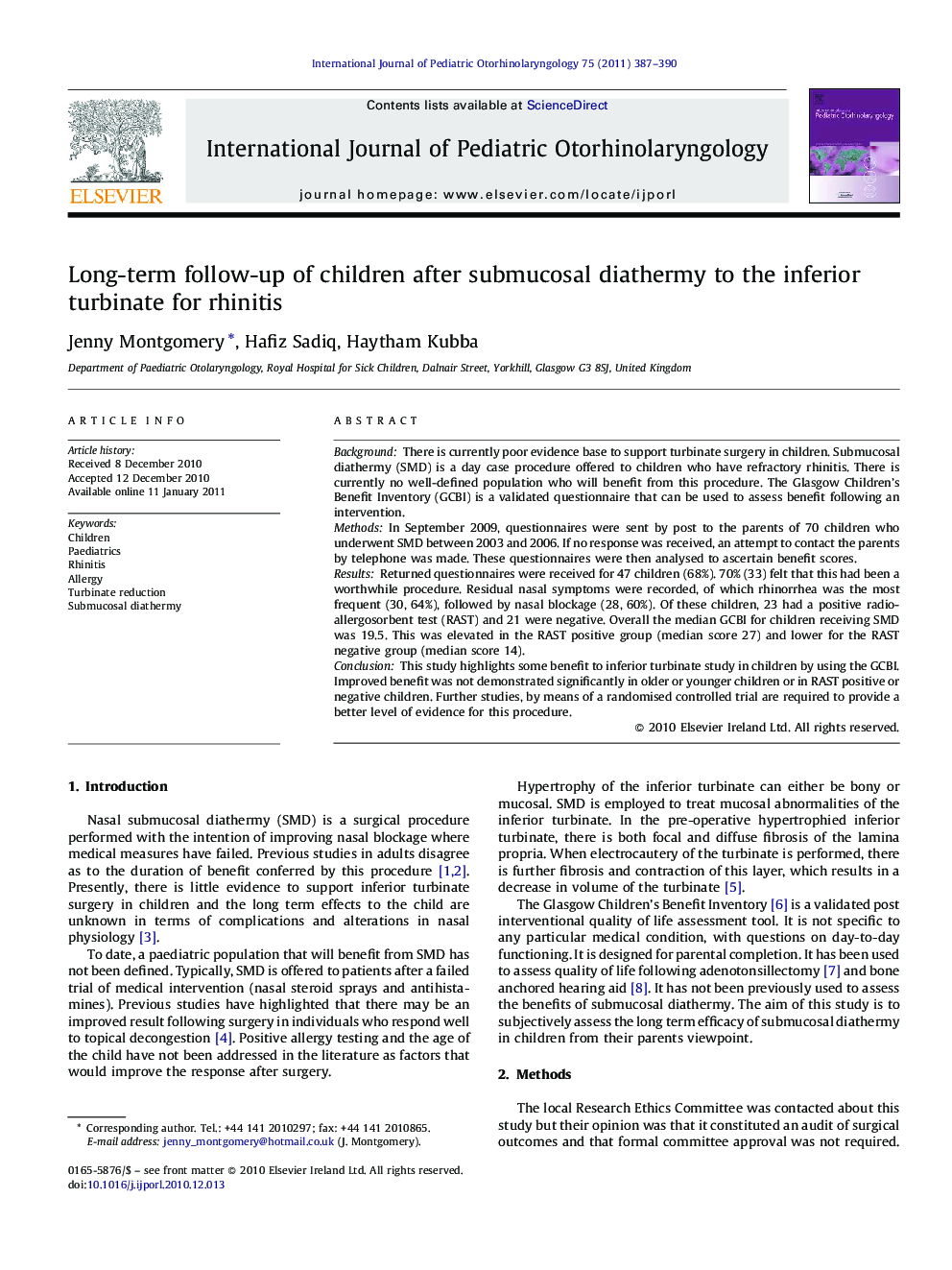| Article ID | Journal | Published Year | Pages | File Type |
|---|---|---|---|---|
| 4113899 | International Journal of Pediatric Otorhinolaryngology | 2011 | 4 Pages |
BackgroundThere is currently poor evidence base to support turbinate surgery in children. Submucosal diathermy (SMD) is a day case procedure offered to children who have refractory rhinitis. There is currently no well-defined population who will benefit from this procedure. The Glasgow Children's Benefit Inventory (GCBI) is a validated questionnaire that can be used to assess benefit following an intervention.MethodsIn September 2009, questionnaires were sent by post to the parents of 70 children who underwent SMD between 2003 and 2006. If no response was received, an attempt to contact the parents by telephone was made. These questionnaires were then analysed to ascertain benefit scores.ResultsReturned questionnaires were received for 47 children (68%). 70% (33) felt that this had been a worthwhile procedure. Residual nasal symptoms were recorded, of which rhinorrhea was the most frequent (30, 64%), followed by nasal blockage (28, 60%). Of these children, 23 had a positive radio-allergosorbent test (RAST) and 21 were negative. Overall the median GCBI for children receiving SMD was 19.5. This was elevated in the RAST positive group (median score 27) and lower for the RAST negative group (median score 14).ConclusionThis study highlights some benefit to inferior turbinate study in children by using the GCBI. Improved benefit was not demonstrated significantly in older or younger children or in RAST positive or negative children. Further studies, by means of a randomised controlled trial are required to provide a better level of evidence for this procedure.
